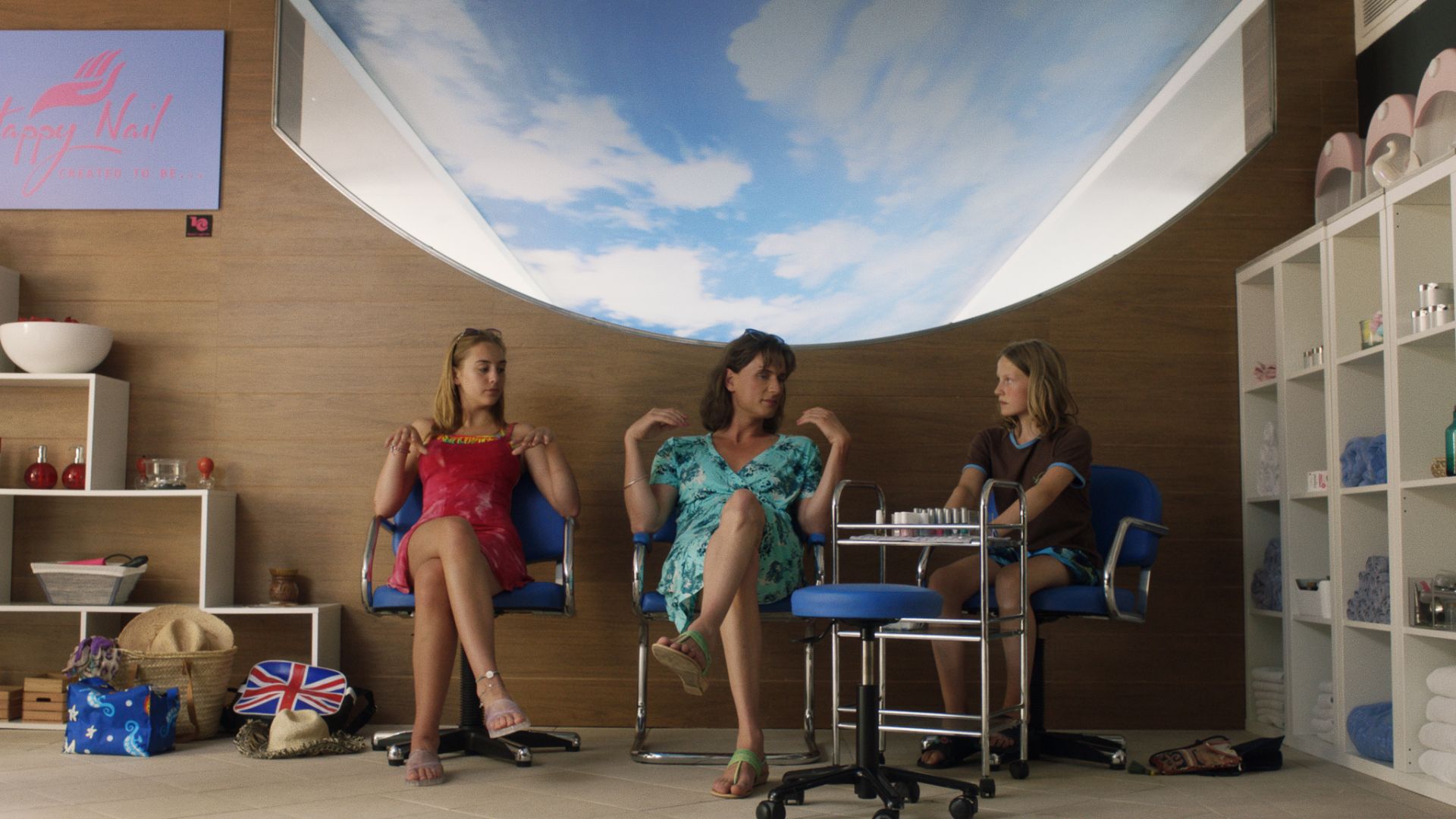
Feature competition
Seeking your own identity, form experimentation, summer and family — these are all the characteristics of the international full-length competition of the 49th Molodist Kyiv International Film Festival.
More and more documentary footage and family archives are used in the films of the competition. For instance, in her ‘A Perfectly Normal Family’ the director Malou Reymann tells a story of a father during the process of his transition, from the perspective of his 11-year old daughter Emma. Reymann uses the footage created as fiction family archive in the film. The reason why is that Malou Reymann has lived through a similar story, thus the re-enactment of old VHS tapes of the holidays by the sea become a natural part of the story.
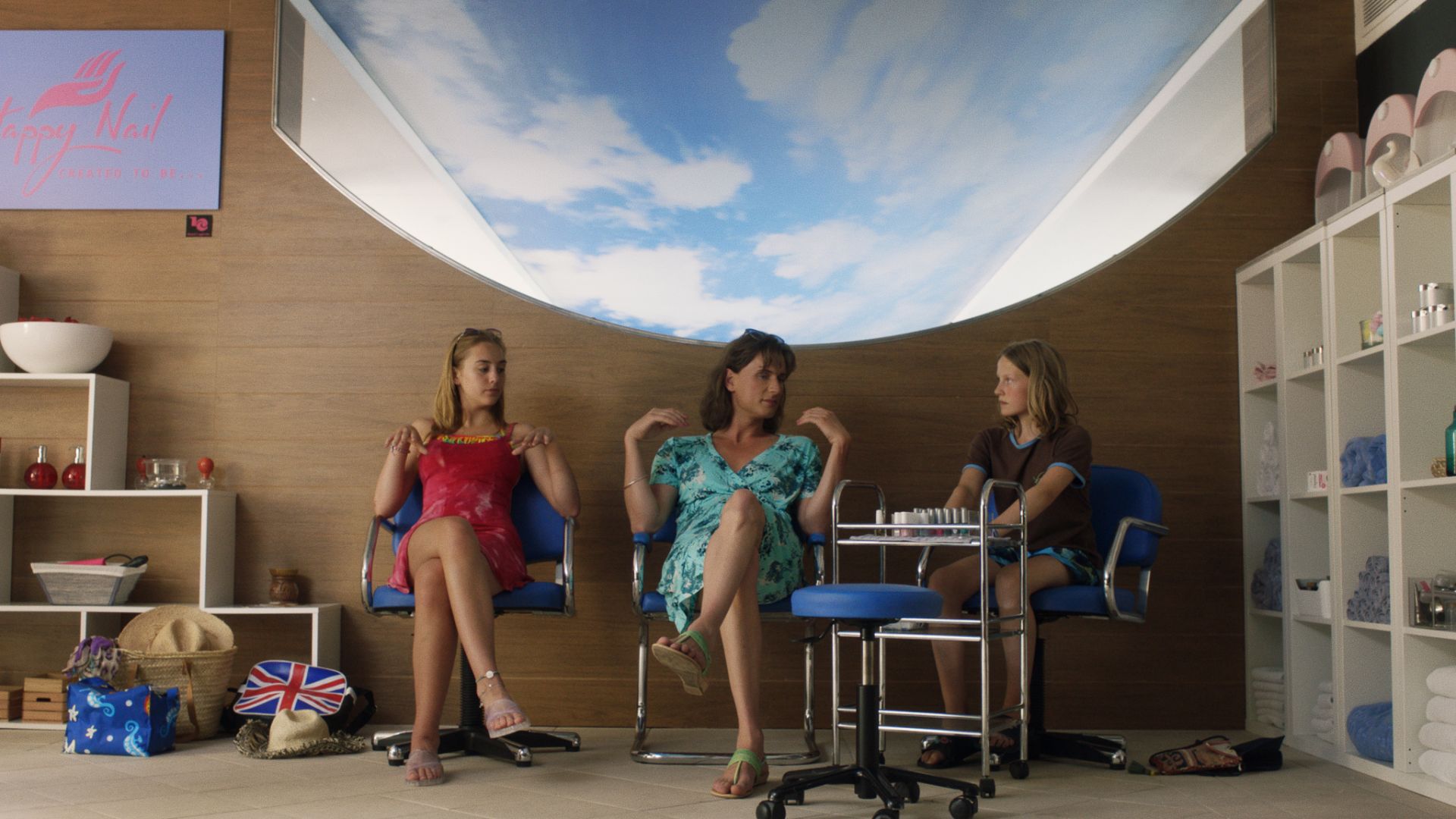
With his film ‘The Death of Cinema and My Father Too’ Dani Rosenberg creates an intricate combination of reality and fiction. From the very title you can see how this is to some extent an autobiographical story, in which the real historical events, family archives, and iPhone footage intertwine. According to the director himself, ‘it’s a fiction film that crashes into the walls of reality’.

Another form experiment is offered by Mantas Kvedaravicius in his ‘Parthenon’. Simulating the work of human memory, Mantas structures his film as fragments of consciousness. Dialogues coincide with associative editing, several stories intertwine in one shot, inviting the viewer to solve this puzzle. As the narrator themselves is not sure where’s the truth and where’s fiction.

‘Digger’ by Georgis Grigorakis is challenging the genre limitations a little bit as well. The film that the director himself describes as a contemporary western with a very familiar archetype of a lonely man with a horse and a shotgun, radiates almost an Ancient Greek tragedy feeling with generation gap conflict and deadly industrialization. The film scene is a depressing mono-town in northern Greece, where the only job you can find is at the construction company that people call the Monster. In these circumstances, the son of the protagonist returns to him after a 20-year absence and demands a share of family land.
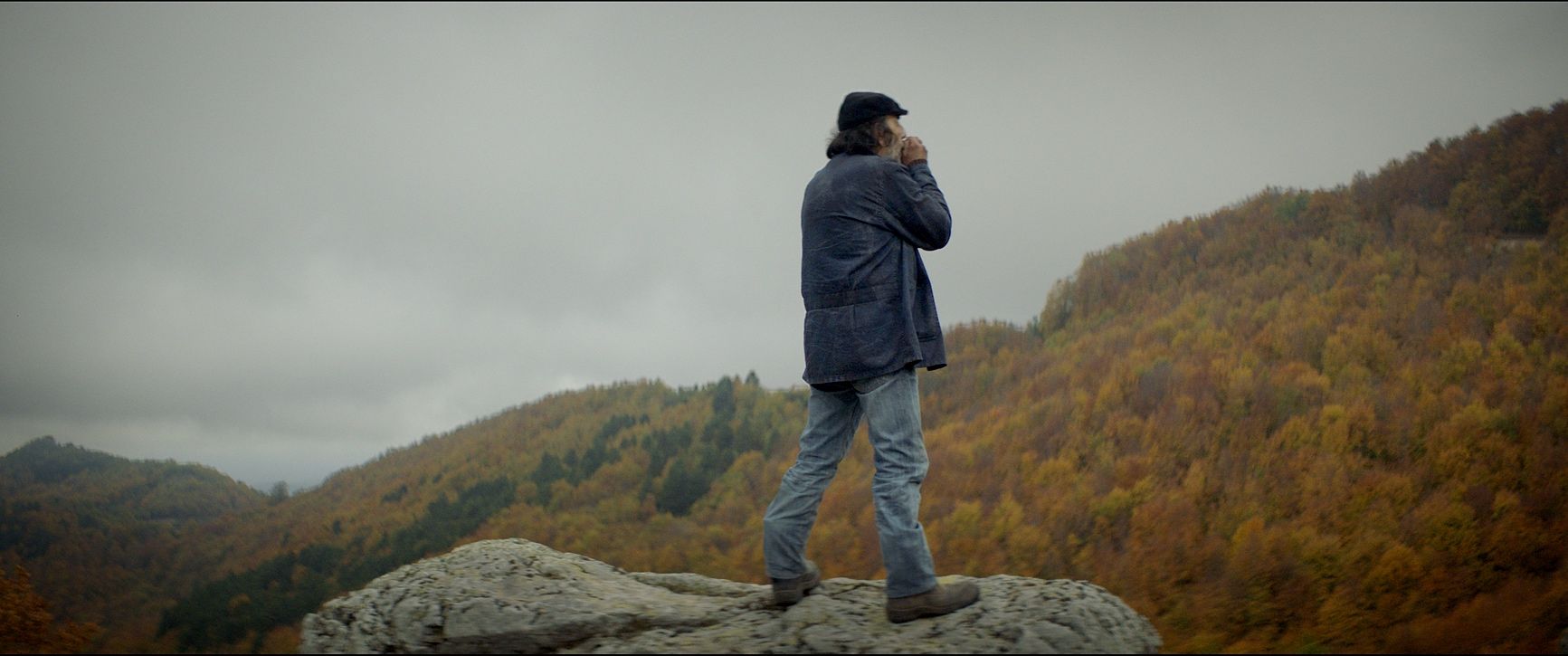
‘The Taste of Pho’ by Mariko Bobrik tells about the generational conflict as well. Long and Mia, father and daughter, live in a small Polish city. They’re Vietnamese, which is one of the biggest national minorities in Poland. While the daughter is completely integrated into the new culture, the father plays the role of a keeper of traditions. The pho soup, which is a part of the title, here symbolizes a family culture, similar to Marcel Proust’s petite madeleines cakes.
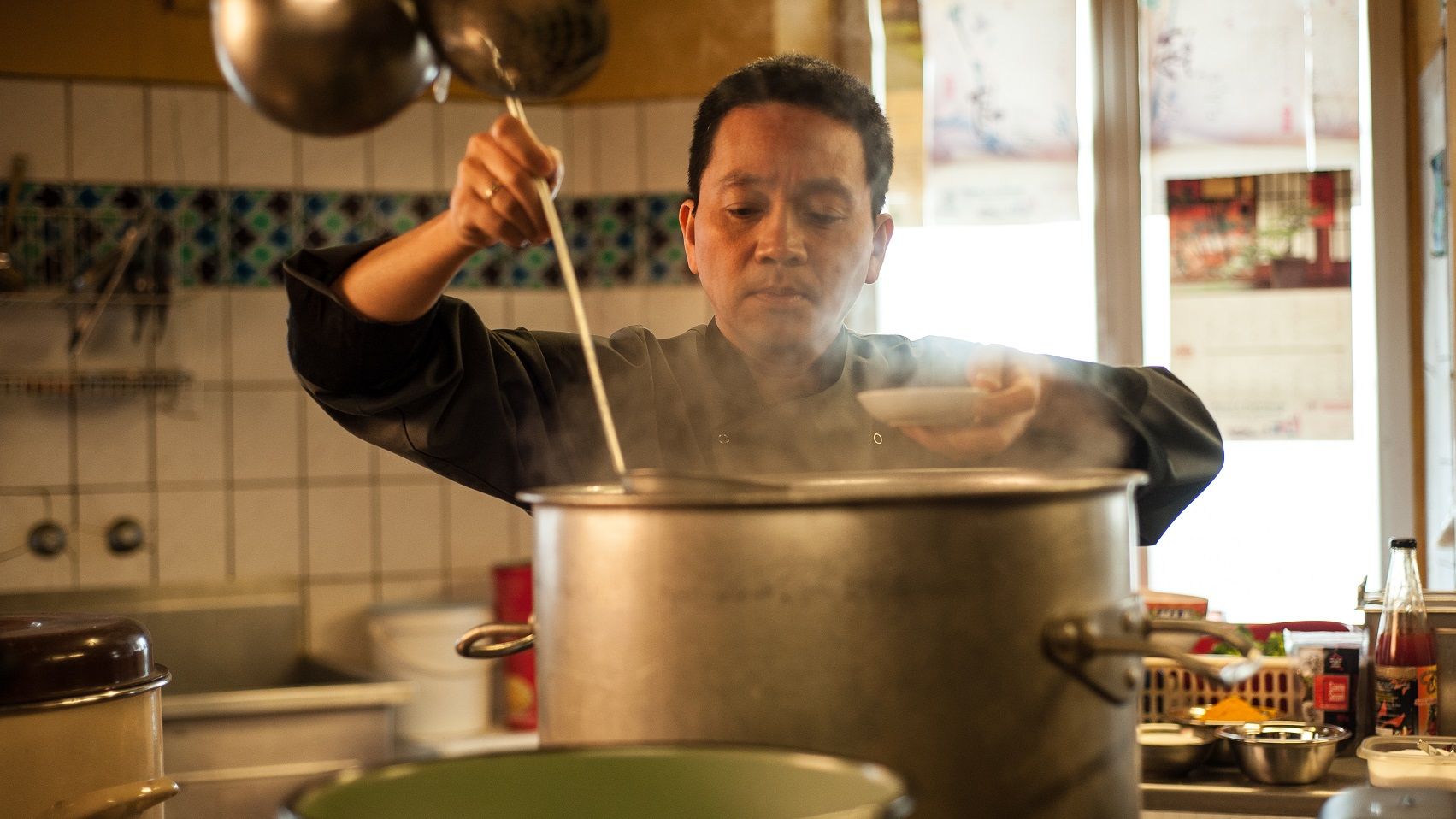
Barbara Ott’s ‘Kids Run’ tells the story of family ties in far more gloomy tones. It’s a melancholic thriller made in grey-blue cold shades about a father who desperately tries to improve the life of his three children. It’s too early to paint the world warm colours in the place where Andy Yovanovych, the main character, lives. He needs to solve the urgent issue of paying €5000 debt first.
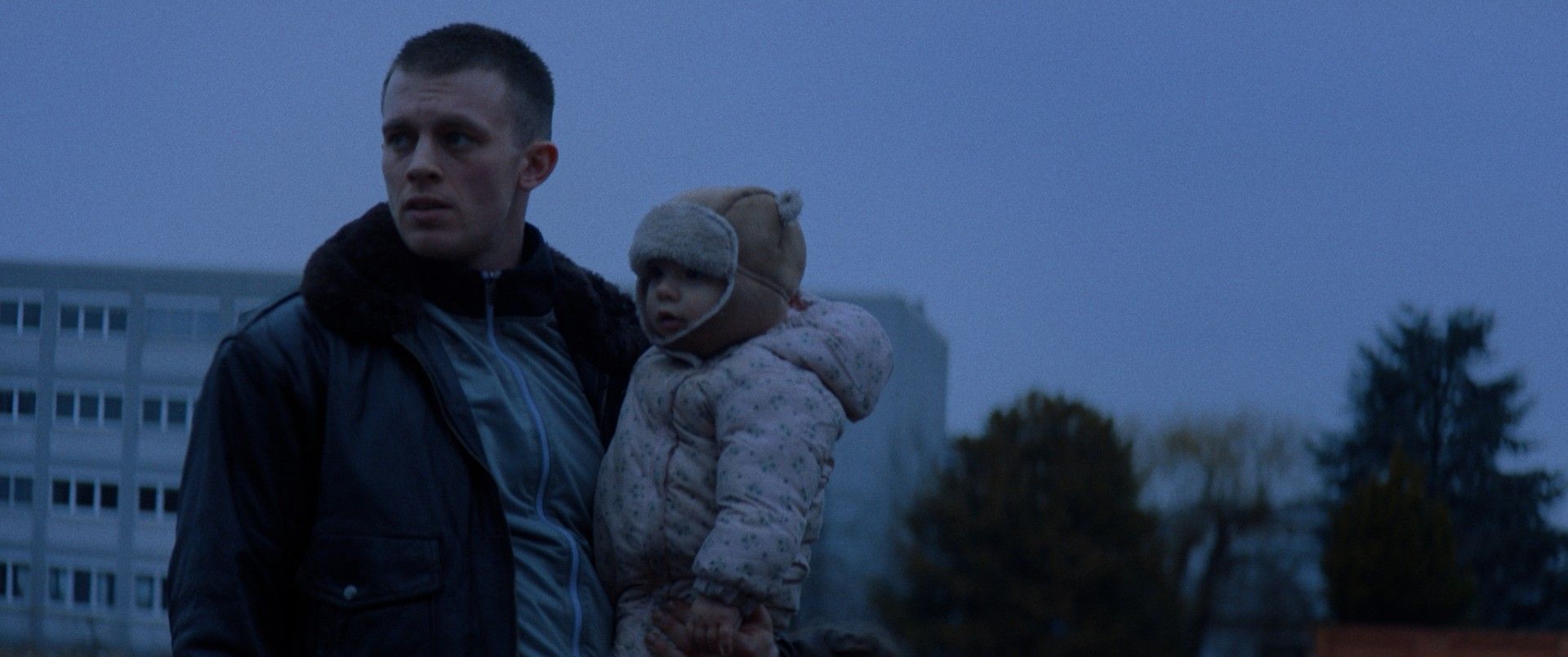
In his film ‘My Morning Laughter’ Marko Djordjevic chooses a different, more ironic intonation for displaying family problems. At the age of 30 Dejan still lives with his parents and suffers from his mom’s overprotection. He can’t even solve his own problems without her. It makes it hard for him both to live his daily life and attempt to develop a romantic relationship with his colleague Kaća. Shot in Kragujevac, and not in Belgrad, ‘My Morning Laughter’ is a portrait of post-communist generation on the periphery of a former empire, adorned with laughter, tears and soul.
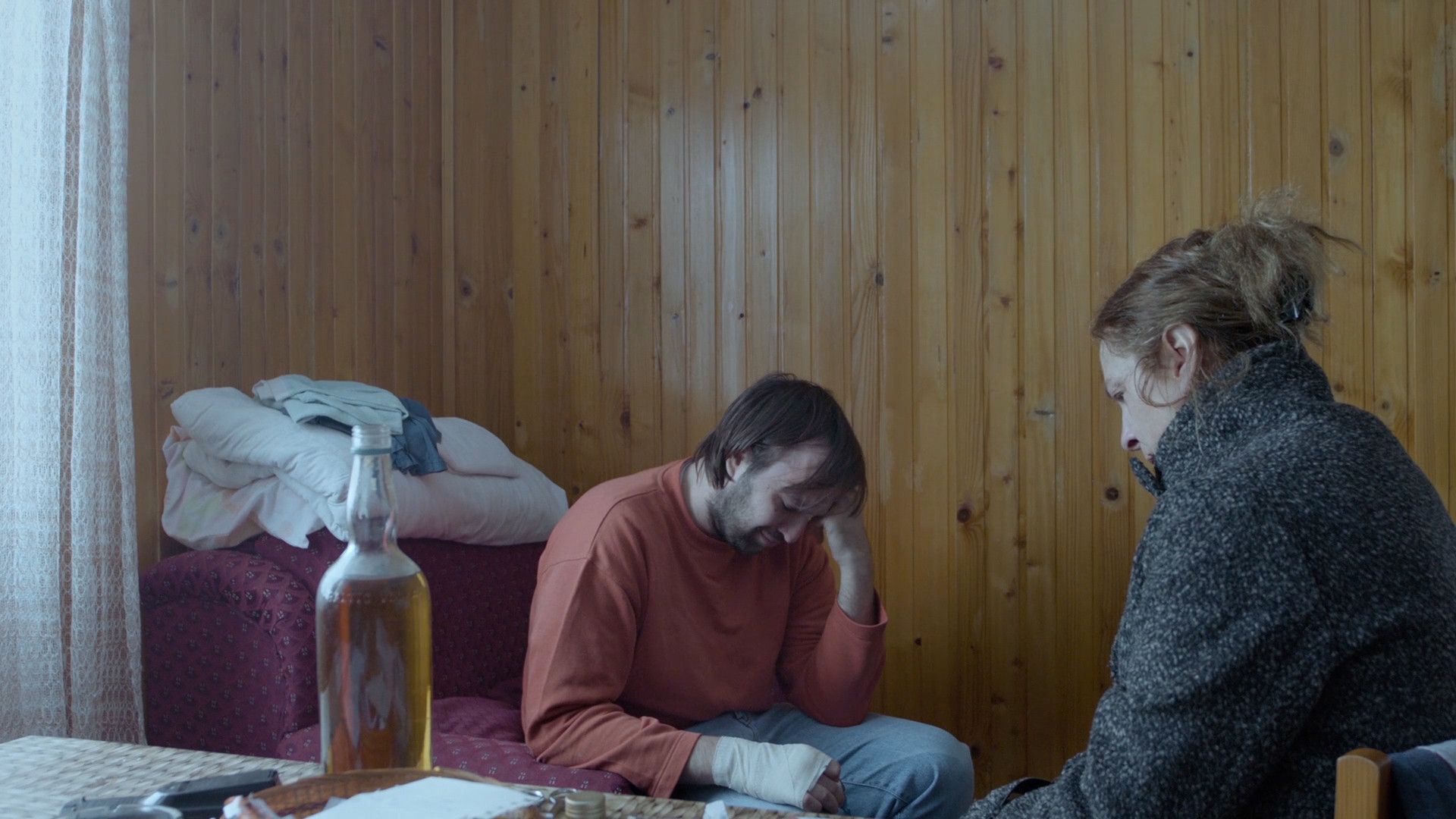
The shadow of family disputes flickers in ‘Ojos Negros’ by Marta Lallana and Ivet Castelo as well. It’s because of them the main character, a 13-year-old Paula, finds herself in the town between the Spanish fields which gave its name to the title. During one summer, as per summer camp traditions, Paula finds true friends for three months and learns the pleasure of nighttime daily talks in the open air. This is one of those films where silence is as important as dialogue.
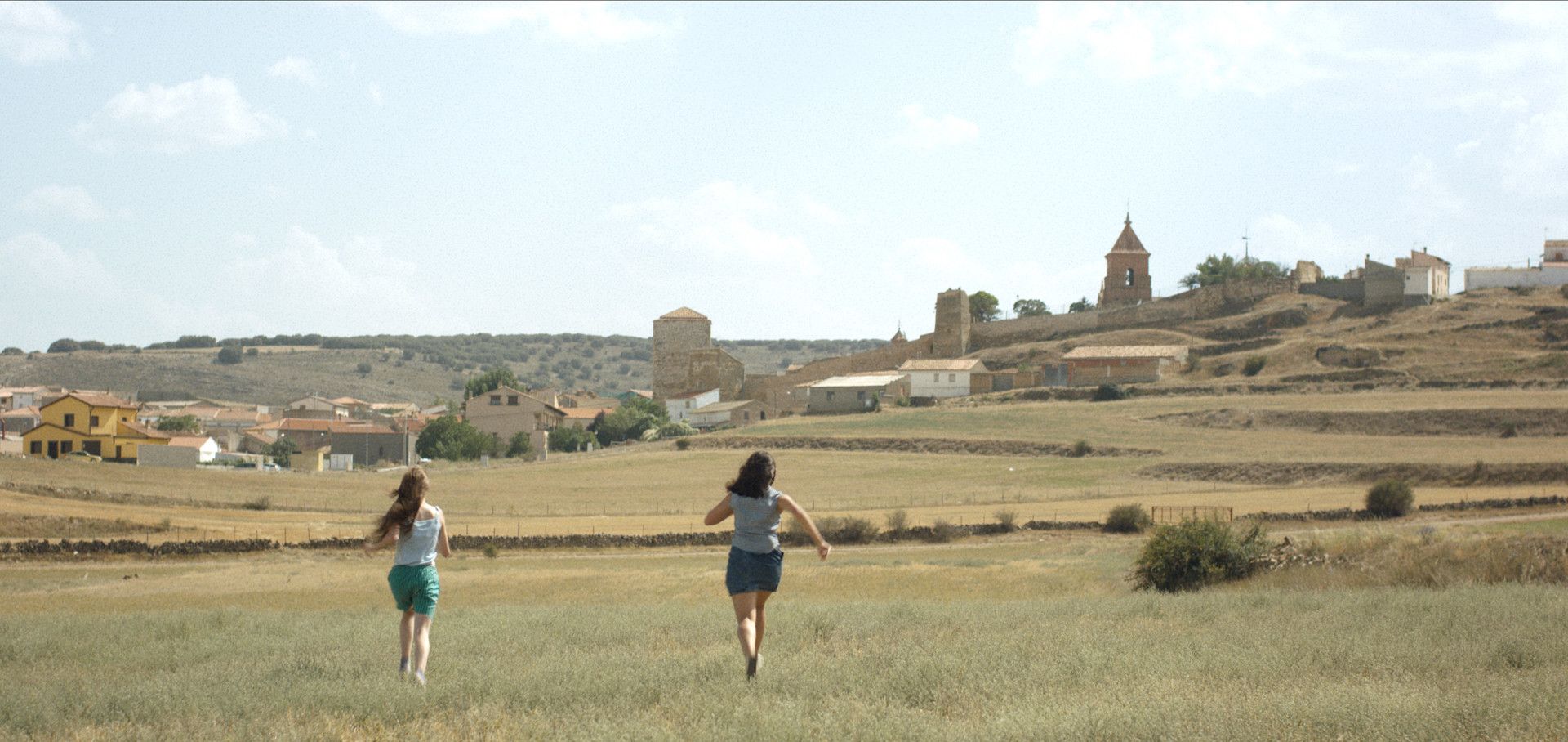
‘Kuessipan’ by Myriam Verreaul, too, reminds us about the friendship that nothing could break off. The story, rooted in, though thousand-year-old, but fragile culture of the Innu people, tells of two girls who, at the turn of their 17th birthday, find themselves at a crossroad: whether to go beyond the reservation and enter the University of Quebec or to stay at home, in their native culture.
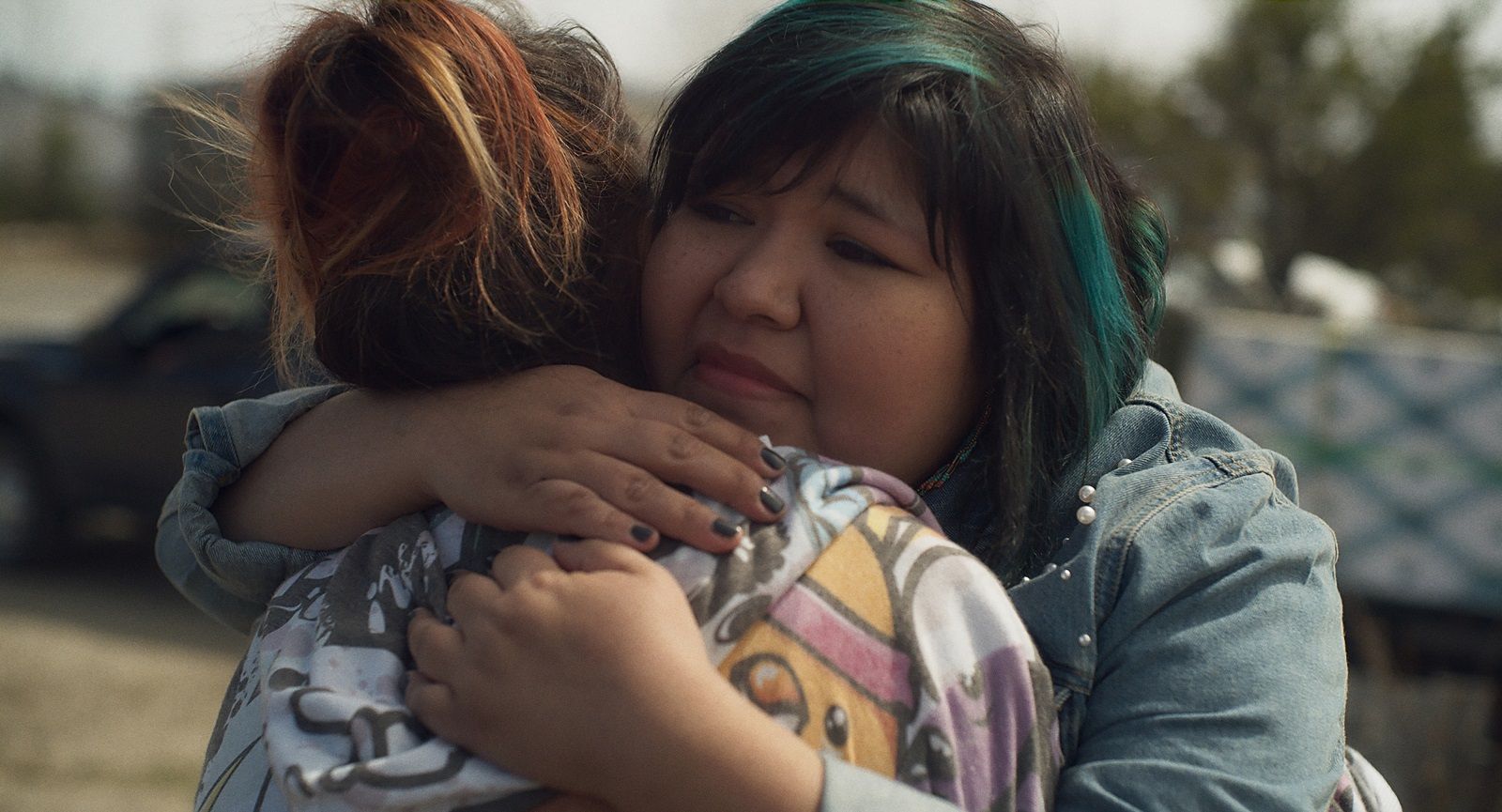
The indigenous inhabitants are also represented at the 49th ‘Molodist’ by Melina León’s film ‘Song Without a Name’. Only this time it’s about Peru and the South American aboriginal peoples. ‘Song Without a Name’ immerses the viewer in the 1980s, the time of political instability, and contrasts with deliberately calm, while in some ways even elegiac directing of a very specific story.
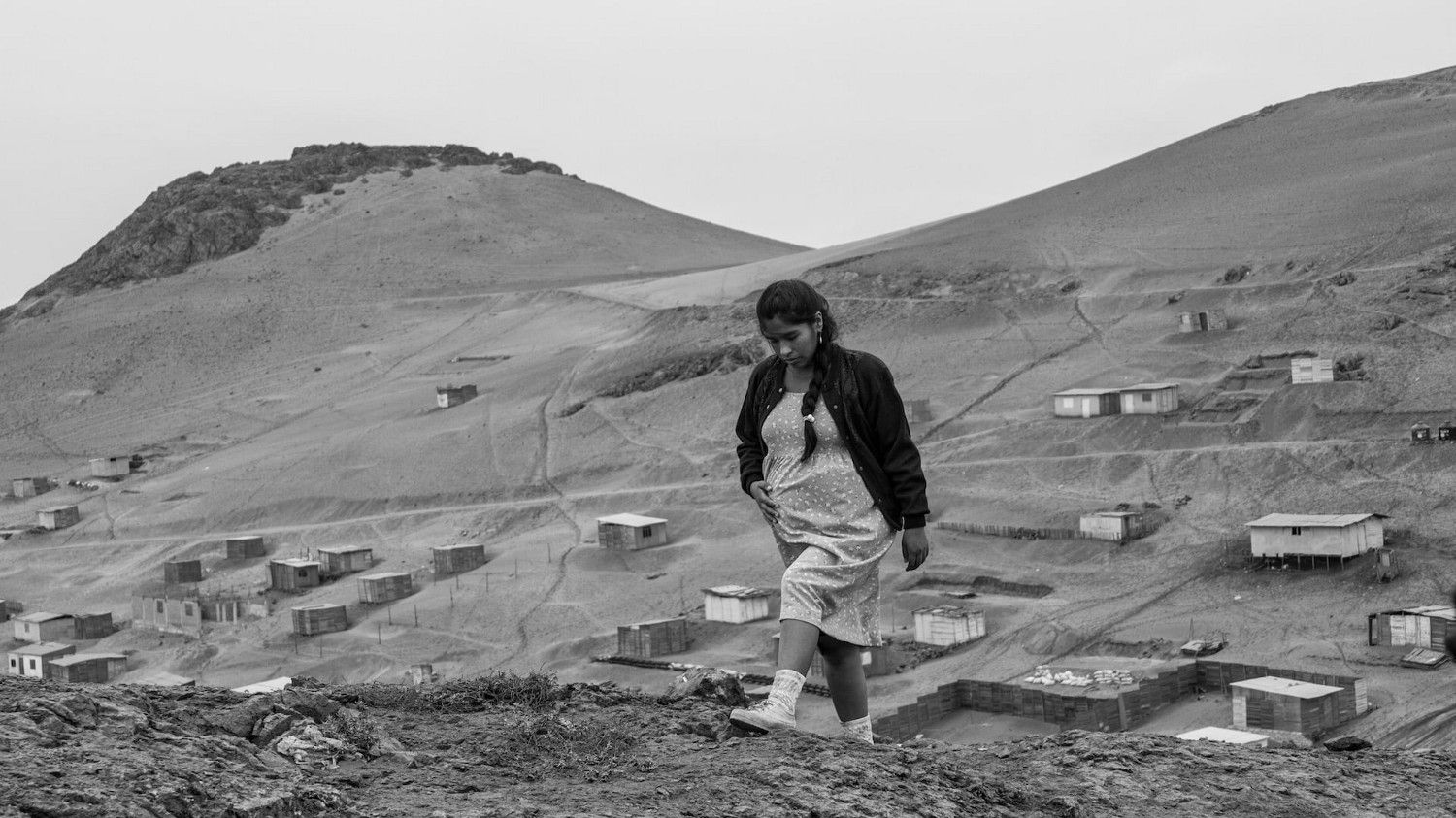
Fernanda Valadez’s film ‘Identifying Features’ seems a bit like a double for ‘Song Without a Name’. Also minimalist, poetic directing, also portrayal of the indigenous population (the Mexican one), also a contrast of a broad social problem and a specific story outside of the statistical reports. However, ‘Identifying Features’ strongly leans towards the genre limitations of the road movie to show how the experience of migration deprives a person of a specific place in space.
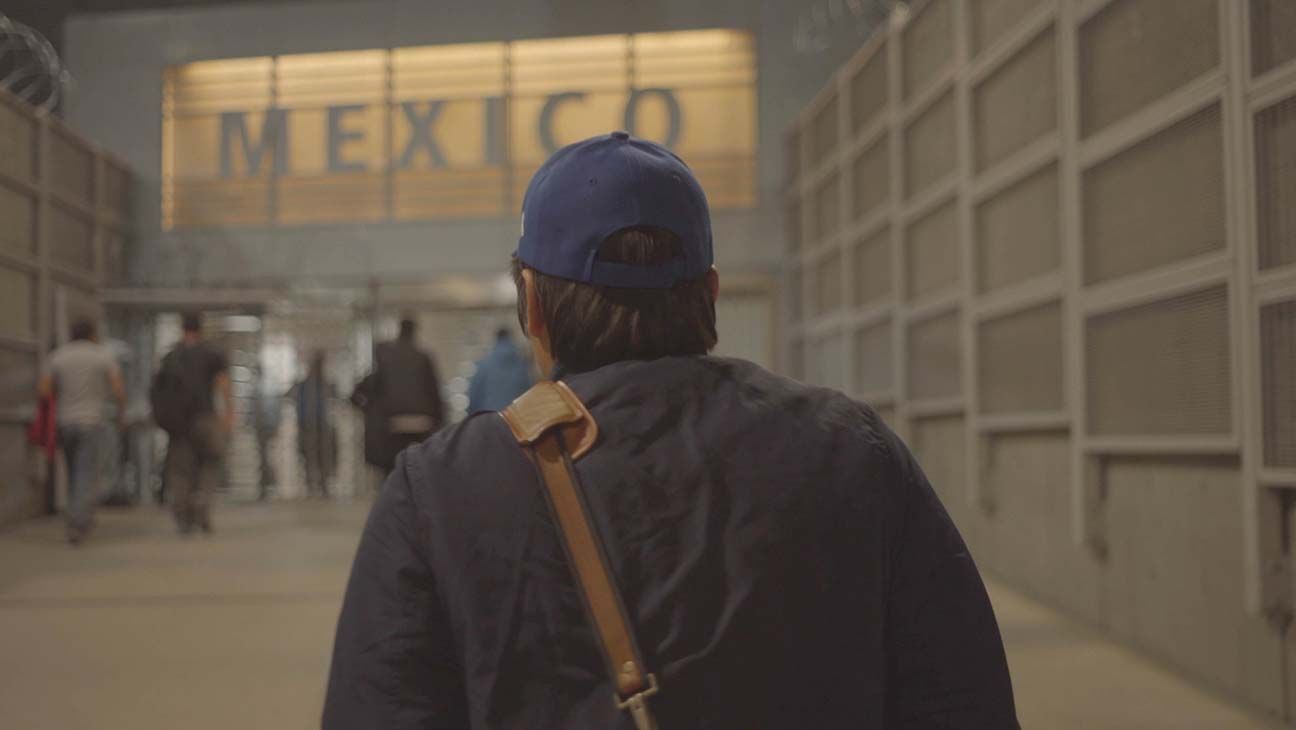
Filippo Meneghetti chooses a more traditional, though no less vivid, form in his feature ‘Two of Us’ for his story about love and obstacles. Nina and Madeleine have been in love with each other for decades and share small moments of tenderness together. However, neither family nor friends know about their relationship. For them, Nina and Madeleine are neighbors who are just friends. However, due to the tragedy happening to one of the heroines, the truth about their love may be revealed.

All films of the feature international program compete for the Grand Prix from the online lottery “Loto Zabava”, the sponsor of the festival.

